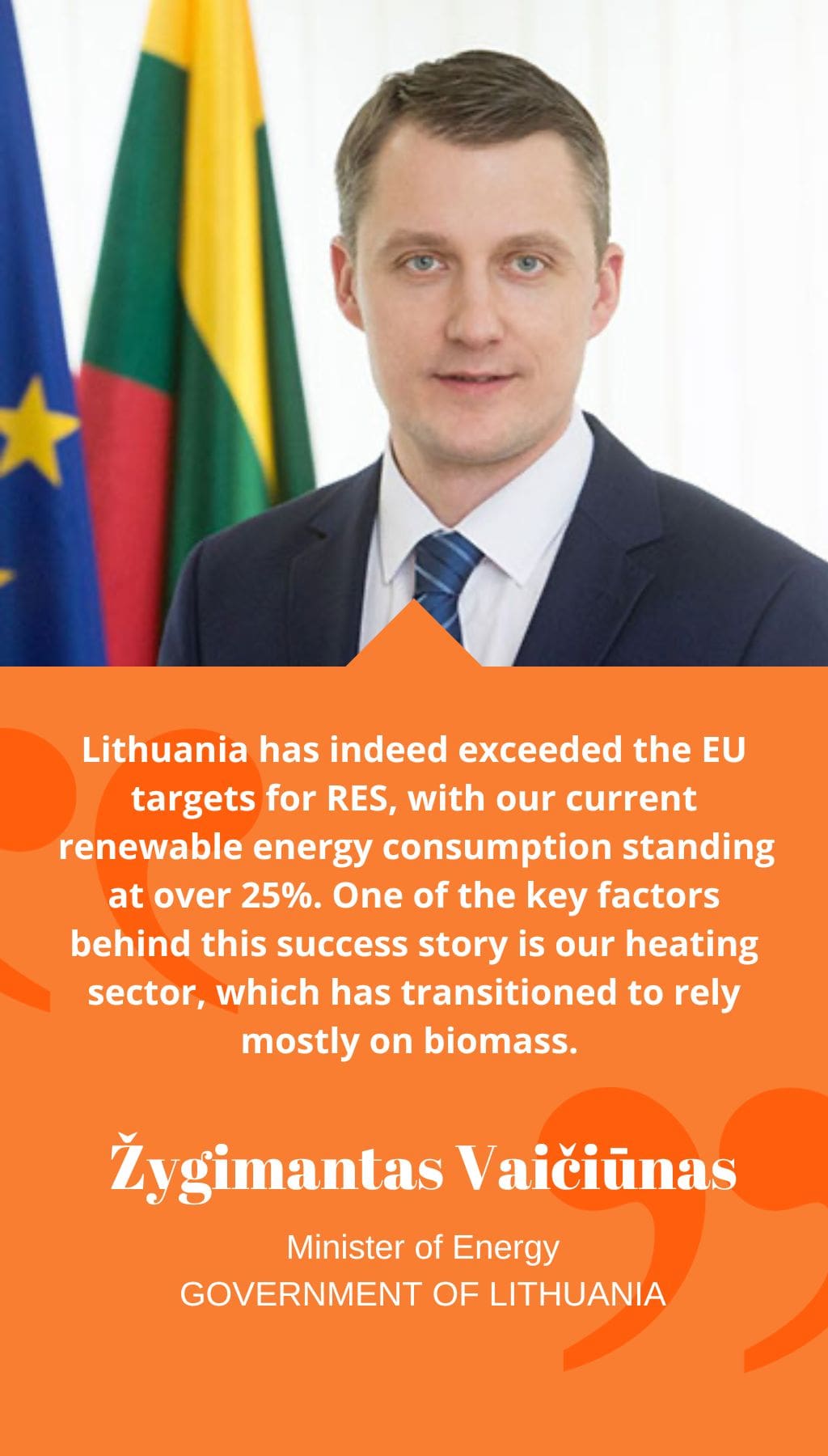
- Lithuania | 24 October 2020

Lithuania has consistently exceeded the EU targets for renewable energy sources (RES), achieving and surpassing the expected 23% by 2014. Can you elaborate on the factors that contributed to this success?
Absolutely, Lithuania has indeed exceeded the EU targets for RES, with our current renewable energy consumption standing at over 25%. One of the key factors behind this success story is our heating sector, which has transitioned to rely mostly on biomass. We had abundant biomass resources available, and we also created the biomass market exchange, which has become very popular in the region, including countries like Latvia, Estonia, Finland, and Sweden. This exchange has helped us ensure competitive prices for consumers, driving the adoption of biomass for heating purposes.
Another factor has been the development of RES in our electricity sector. We have established a competitive system for onshore RES development and a transparent system for market participants. Additionally, we are now making progress in offshore wind energy development. Lithuania is among the top 5 countries in the EU in terms of our ambitions and efforts in RES development. To achieve our ambitious targets, we have been proactive in creating appropriate instruments and policies to drive timely and successful outcomes.
Other countries are struggling to meet their RES targets, whereas Lithuania has been successful. What motivates Lithuania to excel in the area of renewable energy?
Our motivation stems from a combination of circumstances and strategic decisions. In 2010, Lithuania ceased electricity production from the Ignalina nuclear power plant, which was a major source of electricity for our country. Overnight, we transitioned from being an exporter of electricity to becoming one of the biggest importers of electricity in the EU. This situation necessitated a strategic shift towards renewable energy sources.
From a political and strategic perspective, we believed it was important to involve our consumers in the development of renewable energy and foster a sense of ownership among them. To achieve this, we focused on small-scale generation and created a favorable system for individuals to install photovoltaic panels on their homes. We simplified the permission process for installations and established a financial support system, with approximately 30% of the installation costs being supported by the state using EU structural funds. This approach has encouraged widespread adoption of renewable energy at the grassroots level, driving motivation and engagement among consumers.
You have expressed concerns about the nuclear power plant in Belarus. Can you elaborate on your views about nuclear energy in general?
Every country has the responsibility to determine its own energy mix, and naturally, there may be diverging points of view. In principle, the Lithuanian government has decided to prioritize renewable energy as our path towards a sustainable future. However, we acknowledge that nuclear energy can be a viable option for other countries, as it has been historically for Lithuania. Nevertheless, we emphasize that the development and management of nuclear energy must be carried out with great care and responsibility.
Our concerns about the nuclear power plant in Belarus arise from the fact that it is being developed without adhering to key international nuclear safety standards. This poses a threat to our national security, as the plant is located just 40 km from our capital city, Vilnius. The improper site selection, unsafe building process, and doubts about the independence of the Belarusian nuclear regulator raise serious questions about the safety of this nuclear power plant project, which has further reinforced our concerns about nuclear energy in this context.
Can you elaborate on why you see the nuclear power plant in Belarus as a national security threat for Lithuania?
There are several reasons why we view the nuclear power plant in Belarus as a national security threat for Lithuania. Firstly, the location of the nuclear power plant was not selected properly and was done by breaching international agreements, as recognized by more than 30 members of the ESPOO convention.














